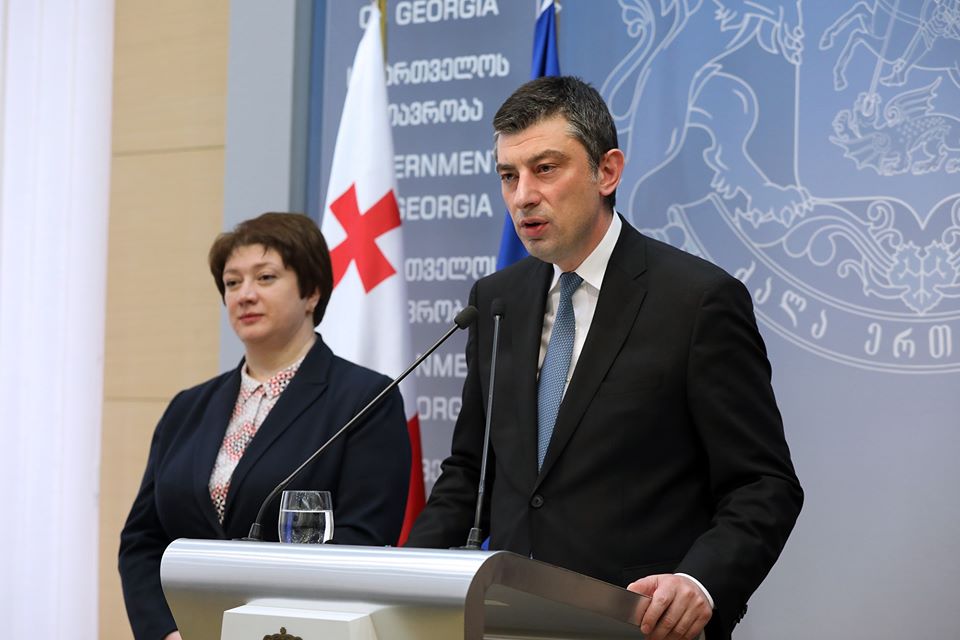Georgian Prime Minister Giorgi Gakharia has announced a ₾1 billion ($357 million) package in financial aid to help the economy weather the economic impact of the coronavirus pandemic.
The announcement came as the value of the lari hit an all-time low on Friday at almost ₾3 to the dollar, according to the National Bank.
Soon after Gakharia’s statement, the National bank announced it was selling $40 million in reserves to stabilise the currency.
In a press conference on Friday, the PM outlined a raft of measures including increased infrastructure spending as well as aid to the tourism industry.
Gakharia said that the tourism sector would be the first to feel the pressure, and said that hotels, restaurants, tour firms, and transport companies would be among those enjoying tax concessions for March-June payments until November.
The measures announced included four-months tax and property relief for about 18,000 companies and 50,000 employees in the tourism sector. He said this would save the industry around ₾100 million ($36 million).
He said the government would also cover the interest on loans for around 2,000 small to medium-sized hotels, those with 4-50 rooms, for the next six months.
He also said the government would invest an extra ₾300 million ($107 million) in infrastructural projects by the end of the year.
Gakharia also promised to double planned VAT returns in the private sector to ₾1.2 billion this year.
The announcement came after Georgia’s major commercial banks — Bank of Georgia, TBC, Liberty, and VTB, announced they would suspend obligatory debt repayments from clients for three months due to the coronavirus crisis.
The prime minister said this was the result of an agreement reached after meeting with financial sector bosses a day earlier.
Other measures
Hours before the PM’s press conference, the Cartu Foundation, owned by the billionaire chair of the ruling Georgian Dream party, Bidzina Ivanishvili, announced they were ready to financially assist the government if needed.
‘If we’re going to need more resources, of course, I’ll appeal to all and first of all, to the Cartu Foundation’, Gakharia said during his Friday press conference.
Gakharia, who was appointed Business Ombudsman after the Georgian Dream coalition under Ivanishvili came in power in 2013, is considered a close ally of Ivanishvili's.
Before being appointed Prime Minister, Gakharia held several senior government positions, including as minister for the economy and internal affairs.
On Friday, Gakharia said the government was preparing to declare a nationwide emergency situation if necessary.
‘An emergency situation implies steps like suspending schools or banning mass events, which we already did… When we arrive at the moment when we need to circumvent certain rights of our citizens, we will certainly take that step’, Gakharia told journalists.
He said that restricting movement across the border with Russia was being considered among other measures.
The PM became chair of an inter-agency council to tackle the virus after the first infected case was confirmed on 26 February.
Following a gradual growth in the number of infected, the council first closed indirect air and land travel with China, North Korea, Iran, Italy, later adding Germany, France, Spain and Austria to the list.
Those entering from these countries are required to remain in quarantine for two weeks unless they have documents proving they tested negative for the virus in their country of original departure or transit.

At the time of publication, there were 25 confirmed cases of coronavirus infection in Georgia. Most of those had travelled to Italy or come into contact with someone who did.
According to the authorities, there are currently 245 people in quarantine and 58 being closely monitored in hospitals.
In recent days, the government has used the police to quarantine a dozen people who disregarded self-isolation instructions.
Since 12 March, government institutions have partially moved to distance work. The authorities also delayed restarting schools and military recruitment and freed those on probation from attending meetings with their supervisors until mid-April.
On 11 March, the World Health Organisation designated the coronavirus (COVID-19) a global pandemic.




 13 March 2020
13 March 2020



